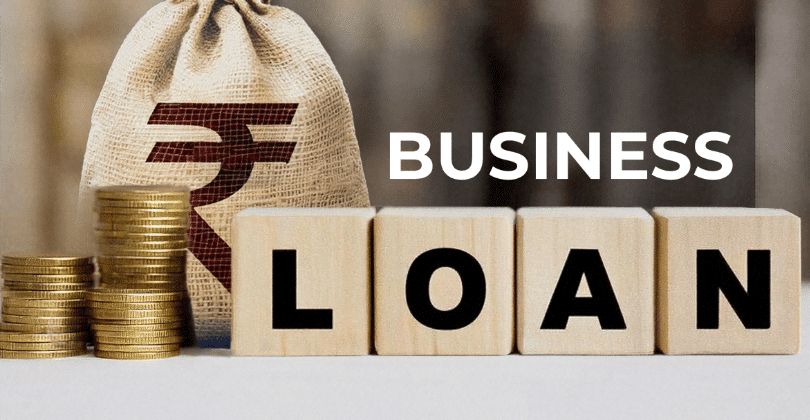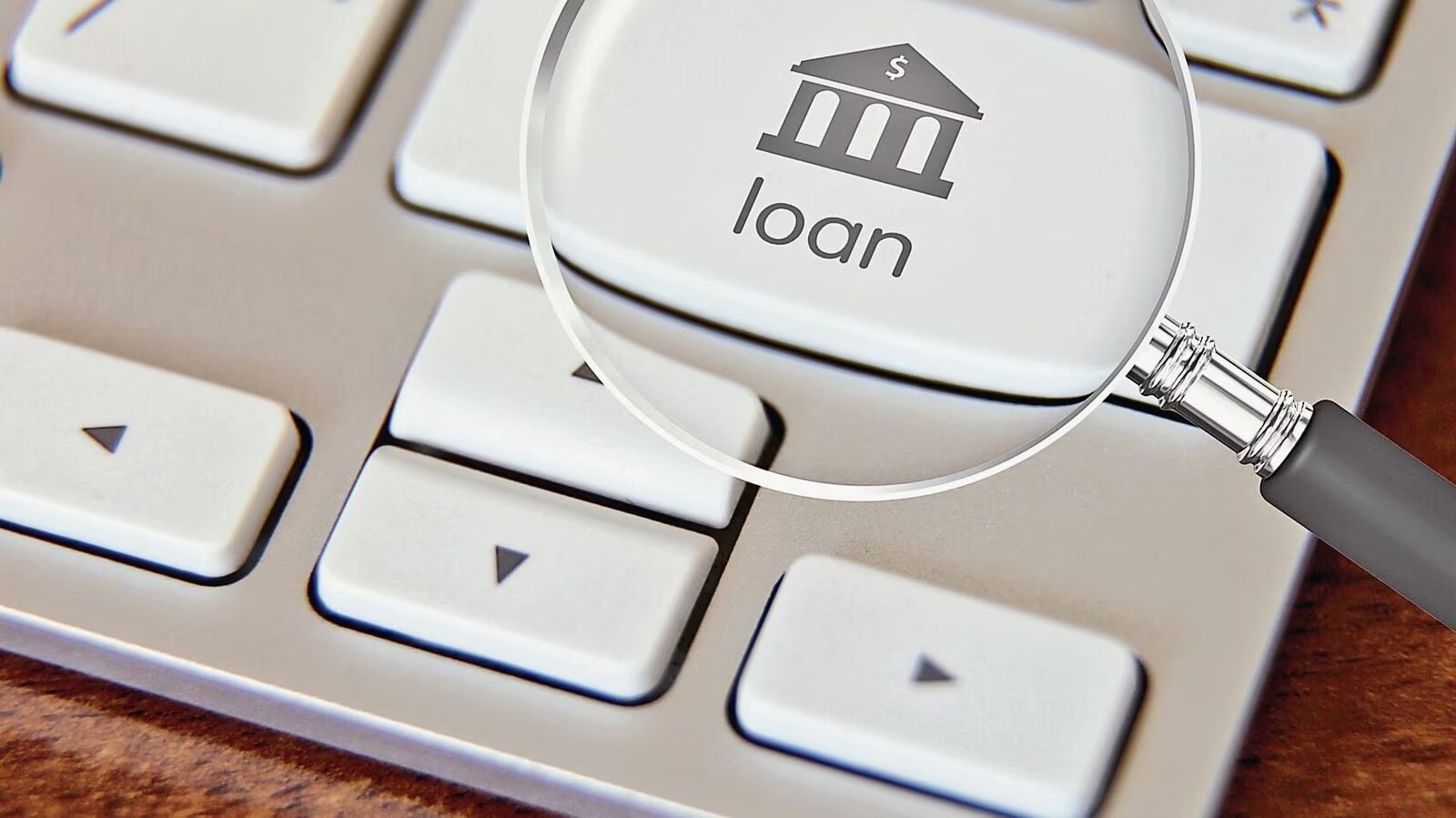In today’s fast-paced world, starting a business or expanding an existing one often requires capital. One common option for obtaining the necessary funds is a personal loan. Personal Loan Business While personal loans are typically used for individual financial needs, they can also be a useful tool for business purposes, especially for small businesses or entrepreneurs who may not qualify for traditional business loans. This article will provide you with a comprehensive guide on how to apply for a personal loan for your business, including key steps, tips, and considerations to make the process as smooth as possible.
Key Takeaways
Personal Loans Offer Quick Access to Funds: Personal loans can provide quick and easy access to capital for small businesses or startups, allowing entrepreneurs to cover immediate expenses without lengthy approval processes.
Unsecured Loans Mean No Collateral: Unlike traditional business loans that may require assets as collateral, personal loans for business are unsecured, which means you won’t risk personal assets in the event of loan repayment challenges.
Flexible Use of Funds: Personal loans for business are versatile and can be used for a wide variety of purposes, such as buying inventory, paying employees, covering operating costs, or funding marketing initiatives.
Good Credit is Key for Better Terms: A higher credit score can help secure a personal loan with lower interest rates and better terms, which can significantly reduce the overall cost of borrowing.
Careful Financial Management is Essential: Taking out a personal loan for business carries personal liability, so careful financial management and an understanding of the loan terms are vital to avoiding potential risks to your personal financial stability.
Understanding Personal Loans for Business

A personal loan business is an unsecured loan that is used for business purposes. Unlike traditional business loans that are designed specifically for business ventures, personal loans are typically intended for individuals. However, many small business owners or entrepreneurs choose personal loans because they are easier to qualify for and often come with lower interest rates, particularly if the borrower has a good credit score.
When applying for a personal loan for your business, you’re essentially borrowing money as an individual, but using the loan to fund business activities like purchasing equipment, covering operating expenses, paying employees, or marketing your business. However, it’s important to note that the lender will evaluate your personal credit score, income, and financial history since the loan is tied to your personal financial profile.
What Is a Personal Loan for Business?
A personal loan for business is an unsecured loan taken by an individual (usually the business owner) and used to fund business-related expenses. Although these loans are intended for personal use, they can be applied toward various business activities such as purchasing equipment, covering operating costs, expanding a business, or marketing efforts. Personal loans are typically offered by banks, credit unions, and online lenders.
The key feature of a personal loan for business is that it’s issued based on the borrower’s personal creditworthiness rather than the financial standing or performance of the business itself. This makes them an attractive option for entrepreneurs who are just starting their business or for those who have limited or no business credit history.
How Personal Loans for Business Work
When you apply for a personal loan for your business, the lender will assess your personal financial situation, including your credit score, income, and debt-to-income ratio. If approved, the loan is disbursed directly to you, and you are responsible for paying it back, with interest, over a set period of time (usually one to five years).
Since personal loans are generally unsecured, there is no collateral required, which reduces the risk for the borrower. However, this also means that lenders may charge higher interest rates compared to secured loans, as they are taking on more risk. The loan amount, interest rates, and repayment terms will vary depending on the lender and your financial profile.
Advantages of Using a Personal Loan for Your Business

While traditional business loans are often a good option for larger companies or established enterprises, personal loans can offer several advantages for smaller businesses or startups. These advantages include:
Quick Access to Funds
Personal loans often have a faster application and approval process compared to business loans. Once approved, the funds are usually disbursed relatively quickly, allowing business owners to access the money they need without delay.
Fewer Requirements
Personal loans may have fewer eligibility requirements compared to business loans. Lenders may not require you to provide a business plan, financial statements, or projections, making the application process more straightforward.
Lower Interest Rates
If you have good credit, personal loans generally offer lower interest rates than credit cards and other financing options. This can save you money in the long run, especially if you plan on borrowing a significant amount.
Unsecured Loan
Since personal loans are typically unsecured, you won’t need to offer collateral, such as property or assets, to back the loan. This reduces the risk of losing valuable assets if you fail to repay the loan.
Flexible Use of Funds
Unlike some business loans that come with restrictions on how the funds can be used, personal loans typically offer more flexibility. You can use the funds for a wide range of business expenses, including equipment purchases, marketing campaigns, inventory, and more.
Disadvantages of Personal Loans for Business
While personal loans for business offer various benefits, they also come with a set of challenges and potential downsides that you should carefully consider:
Personal Liability
Since personal loans are tied to your personal finances, you are personally responsible for repaying the loan. If your business fails to generate enough revenue to make the payments, you could be putting your personal credit score and assets at risk.
Lower Borrowing Limits
Personal loans typically come with lower borrowing limits compared to traditional business loans. While business loans can often provide larger sums of money for major investments, personal loans tend to cap out at around $50,000 or less, depending on the lender and your creditworthiness.
Impact on Your Credit Score
Taking out a personal loan can impact your personal credit score, especially if you struggle to make payments. If your business is unable to repay the loan, you risk damaging both your personal credit score and your business’s ability to obtain future financing.
High-Interest Rates for Low Credit Scores
If you have a less-than-ideal credit score, personal loans for business can come with high-interest rates, which can make repayment difficult. Higher interest rates mean that your monthly payments will be more expensive, and over time, the cost of borrowing increases.
Limited Loan Amount
Personal loans are usually offered in smaller amounts compared to business loans, which may not be enough to cover large capital needs. If your business requires significant funding for expansion, purchasing property, or major equipment, a personal loan might not be sufficient.
How to Qualify for a Personal Loan for Business

Before applying for a personal loan, it’s important to understand the qualification criteria. While the specifics may vary depending on the lender, most lenders will assess the following factors:
Credit Score
Your credit score is one of the most important factors in determining whether you’ll qualify for a personal loan. A higher credit score indicates to lenders that you are a low-risk borrower, which can increase your chances of approval and help you secure a lower interest rate. Generally, a credit score of 700 or higher is considered good, while a score below 650 may result in higher rates or rejection.
Income
Lenders will also evaluate your personal income to ensure that you can afford to repay the loan. Most lenders will require proof of steady income, such as pay stubs, tax returns, or bank statements, to verify your ability to repay the loan. Some lenders may also require a certain minimum income level, depending on the loan amount.
Debt-to-Income Ratio (DTI)
Your debt-to-income ratio is the percentage of your monthly income that goes toward paying off existing debts. Lenders typically prefer a DTI ratio of 36% or lower. A higher DTI ratio may signal that you’re overburdened with debt and may not be able to handle additional loan payments.
Employment History
Lenders like to see stability in your employment history. If you’ve been employed at your current job for a long time or have a consistent track record of earning income, this can boost your credibility as a borrower.
Financial History
In addition to your credit score, lenders will look at your financial history, including your payment history on other loans or credit cards. If you have a history of missed payments, late payments, or defaults, it may be harder to qualify for a personal loan.
Steps to Apply for a Personal Loan for Your Business
Now that you understand what lenders look for, let’s break down the steps involved in applying for a personal loan for business purposes:
Step 1: Assess Your Financial Needs
Before applying for a personal loan, evaluate how much money you need and what you will use the loan for. Determine the exact amount required to cover your business expenses, and make sure you have a clear plan for using the loan funds.
Step 2: Research Lenders
Once you know how much money you need, it’s time to research potential lenders. Compare the interest rates, fees, repayment terms, and eligibility requirements of different financial institutions, including:
- Traditional Banks
- Credit Unions
- Online Lenders
- Peer-to-Peer Lenders
Some lenders specialize in personal loans for business purposes, while others may offer loans to individuals for a variety of needs, including business.
Step 3: Check Your Credit Score
Before submitting your loan application, check your credit score to see where you stand. If your credit score is lower than what lenders typically require, take steps to improve it before applying. This could involve paying down credit card balances, resolving outstanding debt, or correcting errors on your credit report.
Step 4: Prepare Your Documents
To streamline the application process, gather all necessary documentation in advance. You will typically need:
- Proof of identity (driver’s license, passport)
- Proof of income (pay stubs, bank statements, tax returns)
- Proof of employment (employment verification letter, etc.)
- Personal financial statements
- Loan application form (provided by the lender)
Step 5: Complete the Loan Application
Once you’ve selected a lender and gathered the necessary documents, you can complete the loan application. Most lenders will allow you to apply online, although some may require you to visit a branch in person. Make sure to provide accurate information and double-check your application before submitting it.
Step 6: Wait for Approval
After submitting your application, the lender will review your financial profile and credit history. If your application is approved, you will receive an offer with the loan amount, interest rate, and repayment terms. Take time to carefully review the loan offer before accepting it.
Step 7: Accept the Loan and Receive Funds
Once you’ve reviewed the offer and are satisfied with the terms, accept the loan. Depending on the lender, funds may be disbursed through a bank transfer, check, or other methods. Once the funds are in your account, you can begin using them for business purposes.
Considerations When Taking Out a Personal Loan for Business
While personal loans for business can be a helpful financing option, they also come with risks and considerations. Here are a few things to keep in mind:
- Personal Liability: Since the loan is tied to your personal finances, you are personally liable for repaying the loan. If your business struggles and you can’t make payments, it could negatively impact your credit score and personal financial standing.
- Interest Rates: While personal loan may offer lower interest rates than credit cards, they can still be relatively high, especially if you have poor credit. Be sure to compare rates and look for the best deal.
- Impact on Credit: Applying for and taking out a personal loan can affect your credit score. Make sure you’re able to handle the loan repayments before applying.
- Loan Terms: Understand the loan terms, including the interest rate, repayment schedule, and any fees. Be sure to factor in all costs when evaluating whether the loan is the right solution for your business.
Also Read : How To Compare Online Personal Loans: Tips For Smart Borrowing?
Conclusion
Applying for a personal loan for your business can be a viable financing option, especially if you’re just starting out or need funds quickly. By understanding the application process, requirements, and potential risks, you can make an informed decision and take steps toward securing the necessary capital for your business. Always remember to evaluate your financial situation, compare offers from different lenders, and carefully review the loan terms before making any commitments.
FAQs
Can I use a personal loan to fund any type of business expense?
Yes, personal loans are versatile and can be used for various business expenses, including buying equipment, paying employees, covering inventory costs, and more. However, some lenders may restrict how the funds can be used.
Is my business credit history important for a personal loan?
Since personal loans are unsecured and tied to your personal financial profile, your business credit history typically isn’t a major factor. However, lenders may still consider your overall financial stability when evaluating your application.
How much can I borrow with a personal loan for my business?
The amount you can borrow depends on your creditworthiness and the lender’s policies. Personal loans typically range from $1,000 to $50,000 or more.
Are personal loans for business tax-deductible?
Generally, interest paid on personal loans used for business purposes is not tax-deductible. However, you should consult a tax professional to understand your specific situation.
What’s the difference between a personal loan and a business loan?
A personal loan is based on your personal financial profile and does not require collateral. A business loan is typically tied to your business and may require a business plan, financial projections, and collateral.
How long does it take to receive funds from a personal loan for business?
The time it takes to receive funds varies by lender, but it typically ranges from a few days to a couple of weeks, depending on the application process and approval timeline.
Can I apply for a personal loan for business if I have bad credit?
It may be more difficult to qualify for a personal loan with bad credit, but it is still possible. You may have to pay higher interest rates, and some lenders may require a co-signer or additional documentation.




